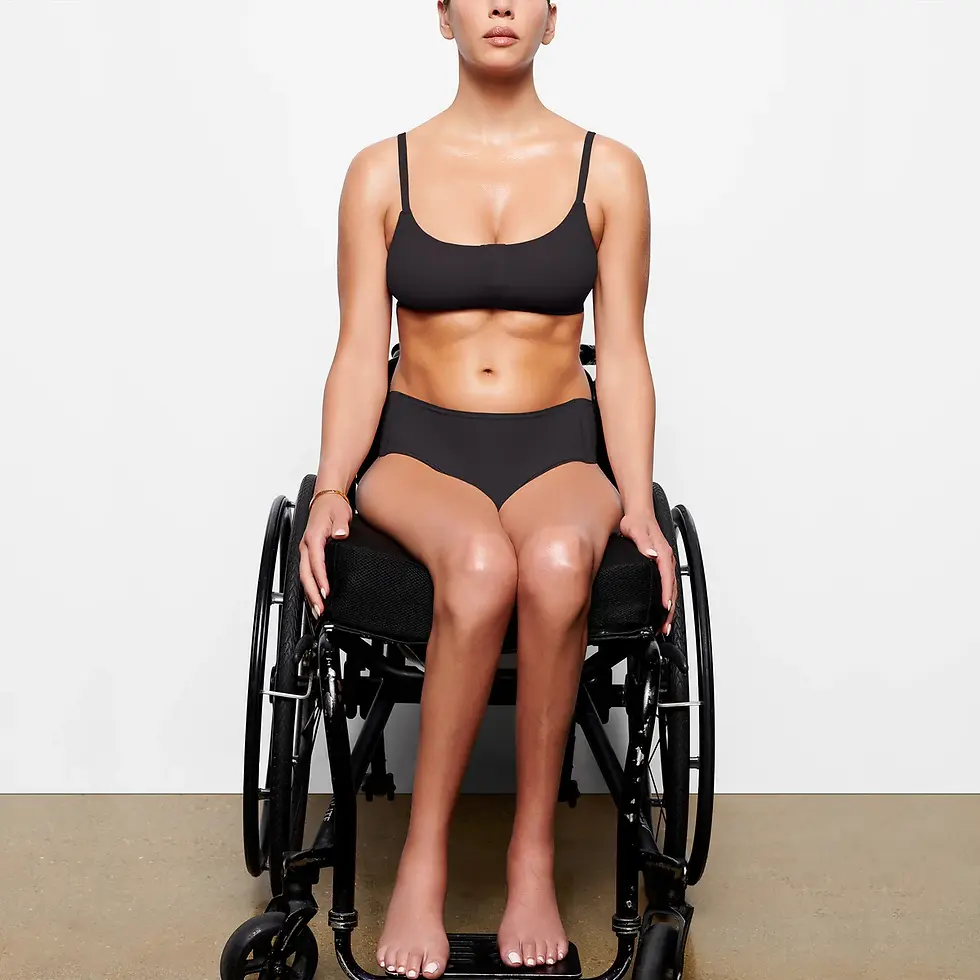This Weeble Wobbles, But She Won't Fall Down. Christina Applegate Rocks.
- Michelle Theall
- Mar 26, 2023
- 3 min read

If you understood that reference, congratulations, you’re middle-aged, like me, or you raised kids who are now in their 40s-60s and haven’t died of cancer from things they ate that were cooked on a lightbulb in the Easy Bake Oven. Nothing wrong with that. With those years come some wisdom, and if you’re lucky, the attitude that you really don’t give a #$%&* if people judge you for walking the dog in your neighborhood in your slippers without a bra (even prior to Covid, before it was acceptable) or for using the eggplant emoji to reference what you’re planning to cook for dinner (of course, if you’re cooking eggplant and serving it to others as an edible meal, perhaps you deserve a little trolling). So, when I saw the Tweets from Christina Applegate, who has multiple sclerosis, calling out conservative podcaster Candace Owens for her horrifying comments about an ad featuring an underwear model in a wheelchair, I realized I do still care—even though I’m jaded and unsurprised.

In the video clip on YouTube, Owens says, “I don’t really understand how far we’re going to take this inclusivity thing,” and “It seems ridiculous.” My first thought was that the company who produced the ad, SKIMS, should double-down and use a BIPOC-trans-gay-differently-abled woman in their next ad. I’m not being facetious here (please, SKIMS!). I have multiple sclerosis—and much like my being gay—you might not know it if I didn’t talk about it (though I admit that my lack of make-up and extensive collection of flannel shirts are kind of a giveaway on the lesbian front, but still). Gay is beautiful now. Yep, you heard me right. Of course, we are still attacked (literally and figuratively), but we are seen and encouraged to be seen. You can’t stream a show or read a book these days without one of the characters being gay, and not just in the role as the quirky or edgy BFF. And in the world of advertising, gender-fluid models hawk everything from Ralph Lauren to health insurance. We are EVERYWHERE. The differently-abled, not so much. And just like gender-and-sexual fluidity, the differently-abled exist on a spectrum.
Even though Ms. Applegate isn’t the model in the “controversial ad,” let’s use her as an example: Would Christina Applegate’s MS diagnosis suddenly make her less funny, beautiful, smart, or talented—less able to be seen as a trustworthy and lovely human to speak for a company than she was before she had MS? Of course not—which makes the use of a wheelchair or cane irrelevant. That kind of thinking, Candace Owens, is what’s truly “ridiculous.”
To her credit, Applegate invited Owens to chat about the issue in order to educate her about what it means to be part of the differently-abled community. I for one, am grateful.
This month, I reach a milestone of 20 years living with MS. I’m a lucky Weeble, but likely, you aren’t around me for the wobbly times—to see when I have trouble walking or my hands don’t work right, my muscles spasm and stiffen, my body tremors, my guts roil or my vision blurs. And I’ve been okay with that—with people “not seeing.” But maybe I’m not anymore. Maybe seeing is the most important thing. Because while I don’t want pity, I appreciate empathy, and as a person who has been marginalized for my gender and sexuality, I know how important media representation is for changing old paradigms. Inclusion equals visibility. And part of being visible, is the bravery it takes to be vocal and be vulnerable. Keep doing what you’re doing Christina Applegate. I stand with you.
#multiplesclerosis #christinaapplegate #selmablair #disabled #todayshow #SKIMS #kimkardashian @1capplegate @skims @mssociety @HaleighRosa @arianabrockington #LGBTQ #BIPOC





Comments